I have used the metaphor of “building the plane while flying it” before, but I have never experienced it quite as literally as these last weeks! This has been quite the reopening for school and each day we get closer to realizing the dream of this first phase of the renovation.
If I had more bandwidth, creativity and money, I would love to shoot one of those “Coming this season…” trailers that shows often use at the end of the first episode of a new season. “This season at the Ottawa Jewish Community School…” And I could provide tantalizing tidbits and foreshadowing of all the exciting things coming for the 2024-2025 school year at OJCS, and there are quite a lot of them. Instead, the best I can do is what you will find below…
Coming soon on The Ottawa Jewish Community School…
- …we actually do finish the first phase of our amazing $2 million classroom renovation! As of this writing, nearly all furniture, millwork, interactive whiteboards, lighting, flooring, painting, etc., of all the spaces covered in this first phase are now in, working and complete. What is left to do? We have whiteboards and cork boards coming in next week and new storage units for upstairs. That should be it…for now! Can’t wait to show them to you at…
- …Back to School Night! Come join us on September 17th at 7:00 PM where in addition to the normal things, you will, 1) Hear from Vice Principal Melissa Thompson about how OJCS is building upon big ideas from The Anxious Generation and, 2) See the new classrooms!
- …we relaunch our OJCS PTA under the leadership of Chelsea Levine who is bringing all her energy and ideas to the table! (And we thank Tracy Hartman for her leadership these last few years!) Want to help Chelsea infuse our school with ruach and joy and friend-raising to enhance the experience of being at OJCS? Email her at [email protected] and get involved!
- …Middle School is prototyping longer blocks of academic time for selected courses and a new Study Skills course. What will be the impact? We’ll see!
- …we finally officially dedicate a Vimy Oak at Beechwood Cemetary on October 10th in loving memory of Rabbi Bulka Z”l and to officially kick off this year’s work of the Rabbi Bulka Kindness Project, generously sponsored by Kind Canada.
Coming this season on The Ottawa Jewish Community School
-
- …OJCS turns 75! Don’t miss the once-in-a-lifetime opportunity celebrate this historic milestone on October 30th!
- …we complete our three-year journey as a CAIS Candidate School and host an accreditation team in February 2025 with the hope of becoming the third CAIS-accredited independent school in Ottawa (joining Ashbury & Elmwood).
There is so much more, but I am really trying to be more parsimonious in the hope that by writing less, it is easier and more enjoyable to read. Next week? Middle School Retreat!

Things I Know Parents Want To Know
- Update on Meat-Dairy days is coming very soon. We’ve heard you.
- Clarification on parking rules for both drop-off and pickup is also coming soon. Safety trumps convenience. Please and Thank You.
- Plans for how the school – and Campus – plan to navigate the anniversary of October 7th.

It is my pleasure to introduce you to our newest “Friend of OJCS”!
Lidia Kaia is an Ottawa-born artist with Down Syndrome, whose work is renowned for its innovative pouring techniques and its use of colour therapy to foster psychological wellbeing. Her art has been thoughtfully designed to positively influence emotional and mental states, helping to alleviate stress and enhance mood. Lidia’s artwork has been featured in exhibitions and private galleries across Europe and is now garnering attention within the Canadian art scene.
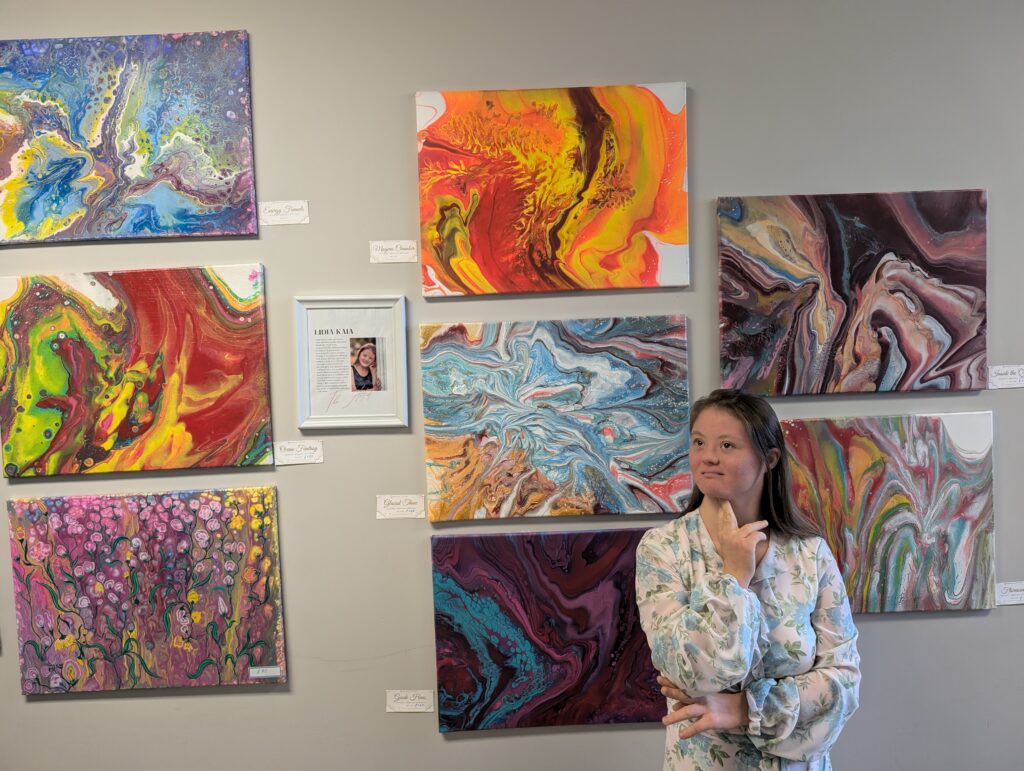
Driven by her love for people, Lidia remains dedicated to creating new collections that reflect her unique perspective and passion for therapeutic art. Lidia and her family are deeply appreciative of the opportunity to showcase her work within our school.
Please feel free to visit Jennifer and Yulia’s office on our first floor where you can view her stunning pieces. You may also view her work – and meet her – and buy some for yourself at Back to School Night! Here is a link to her full portfolio.



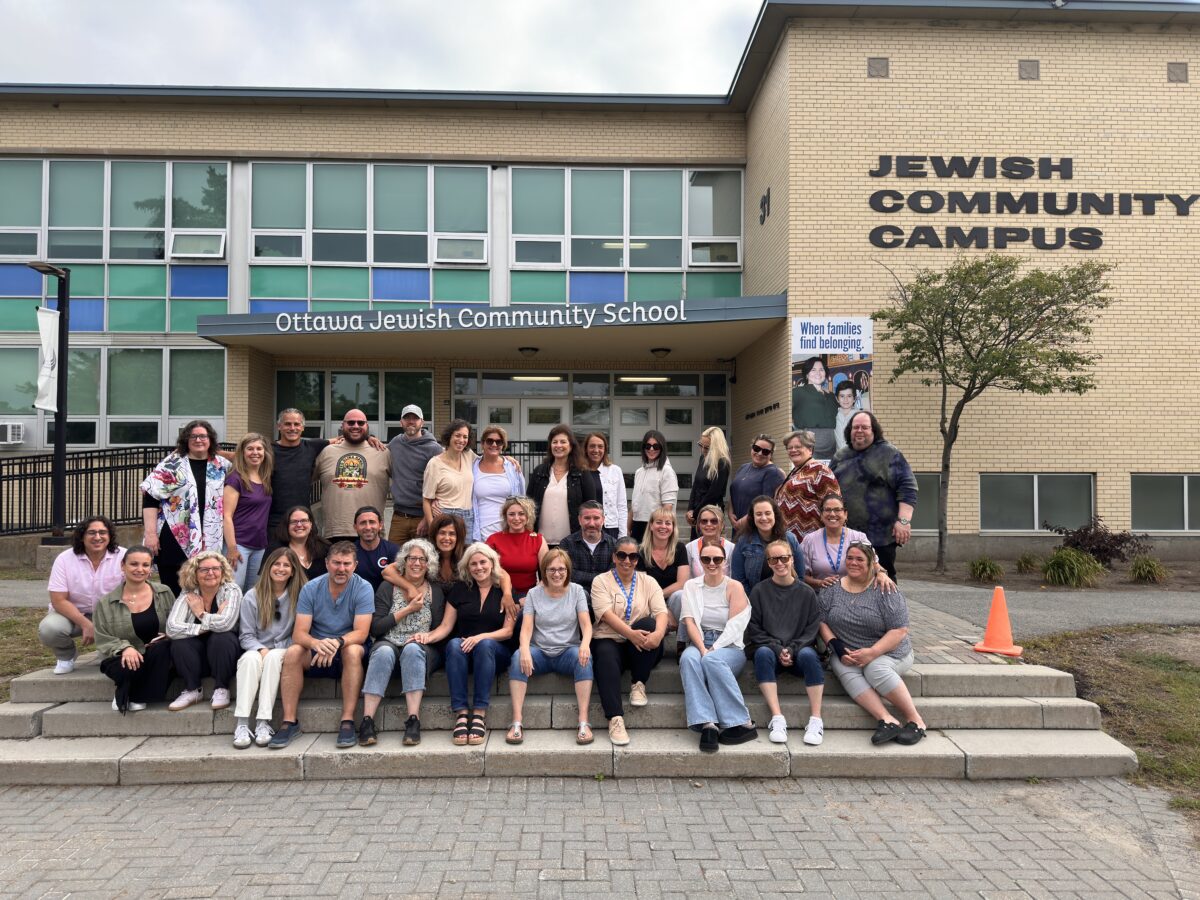
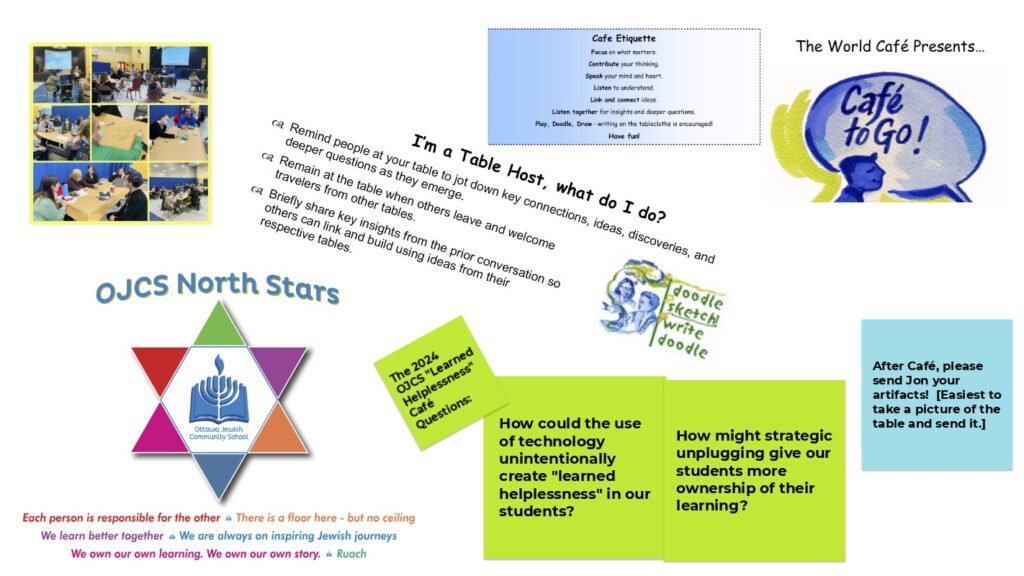
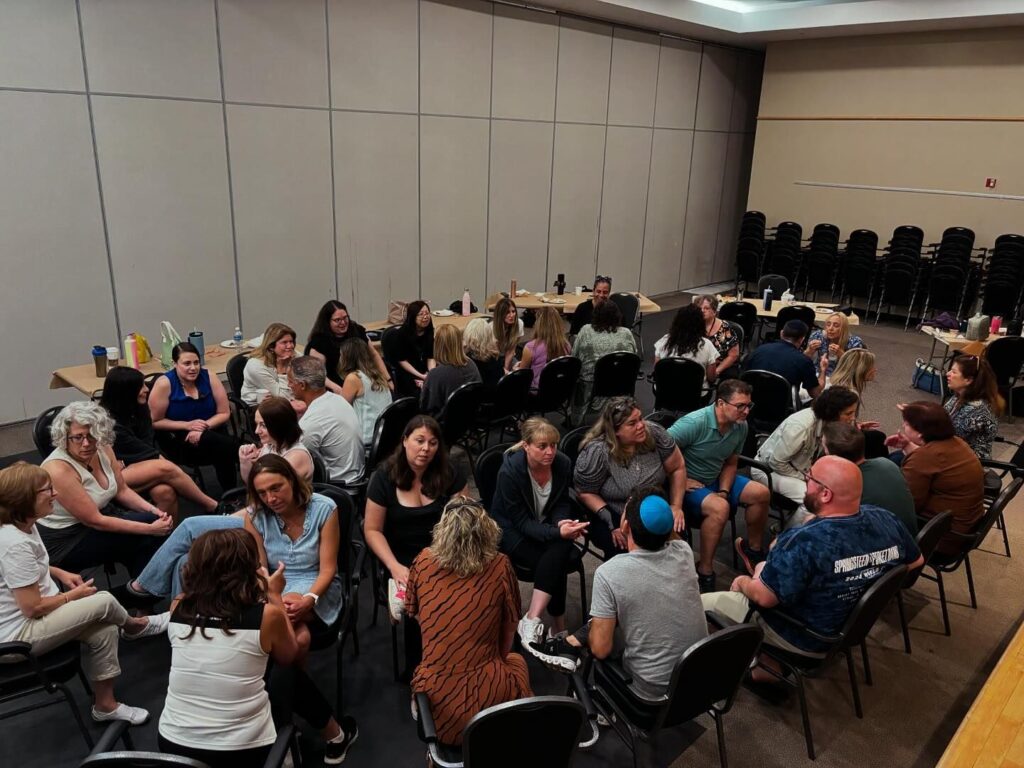
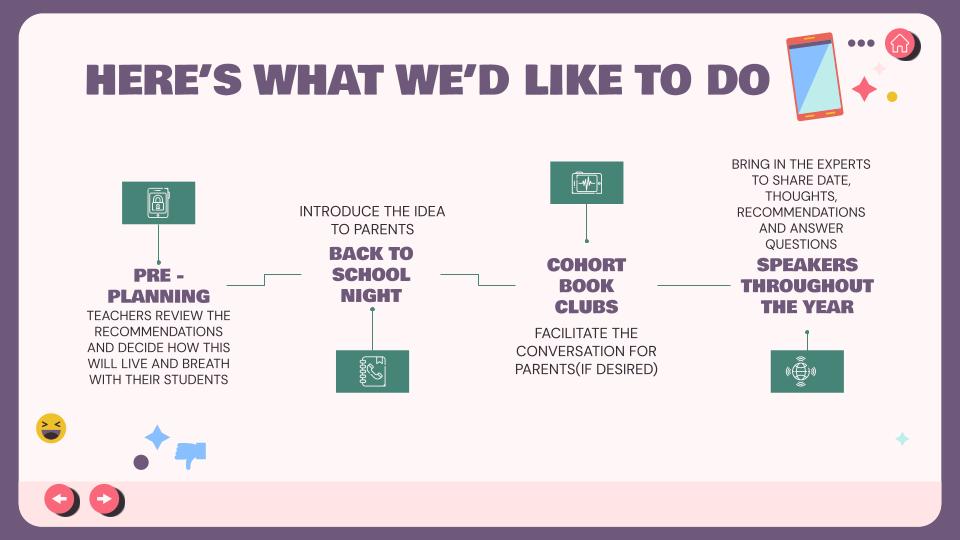





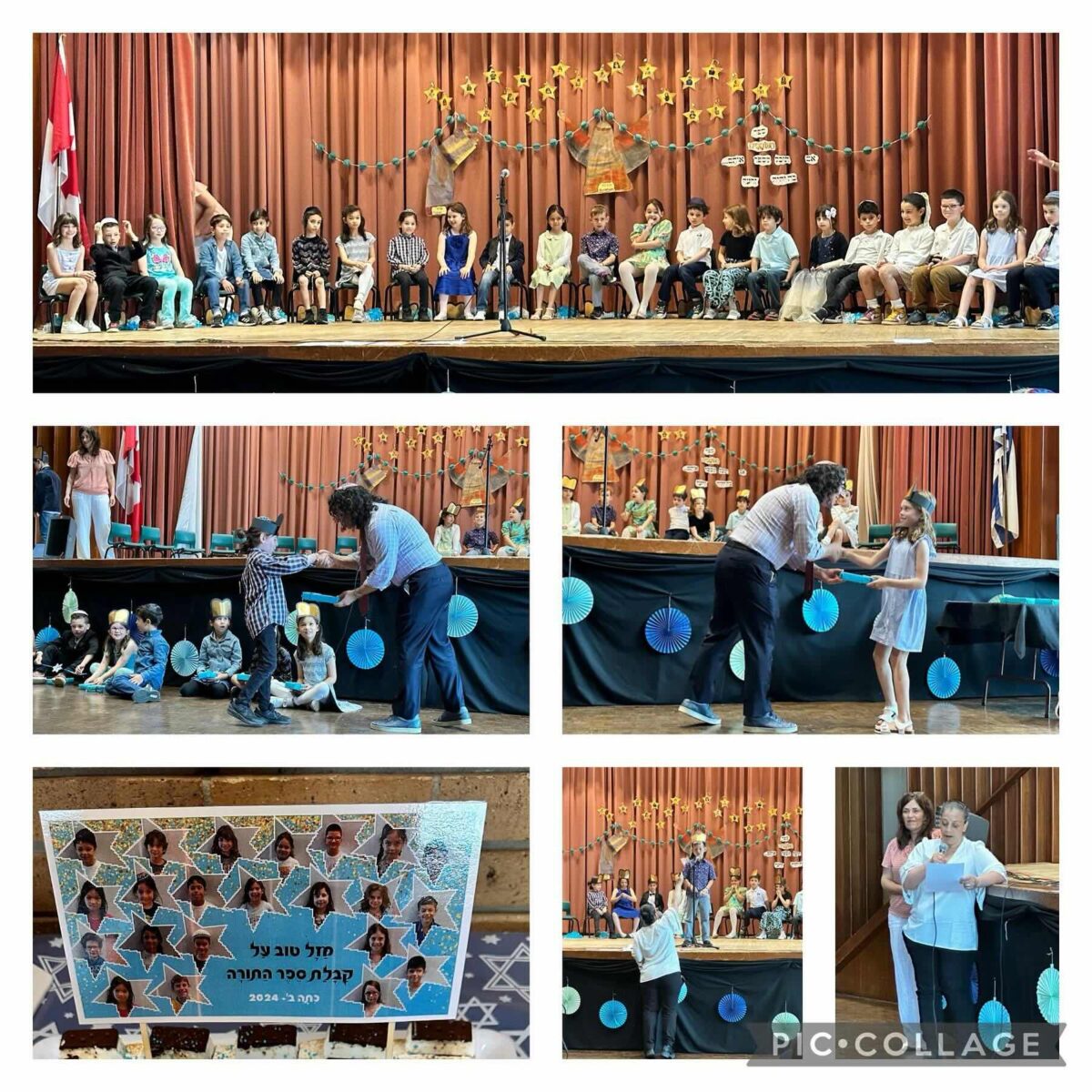
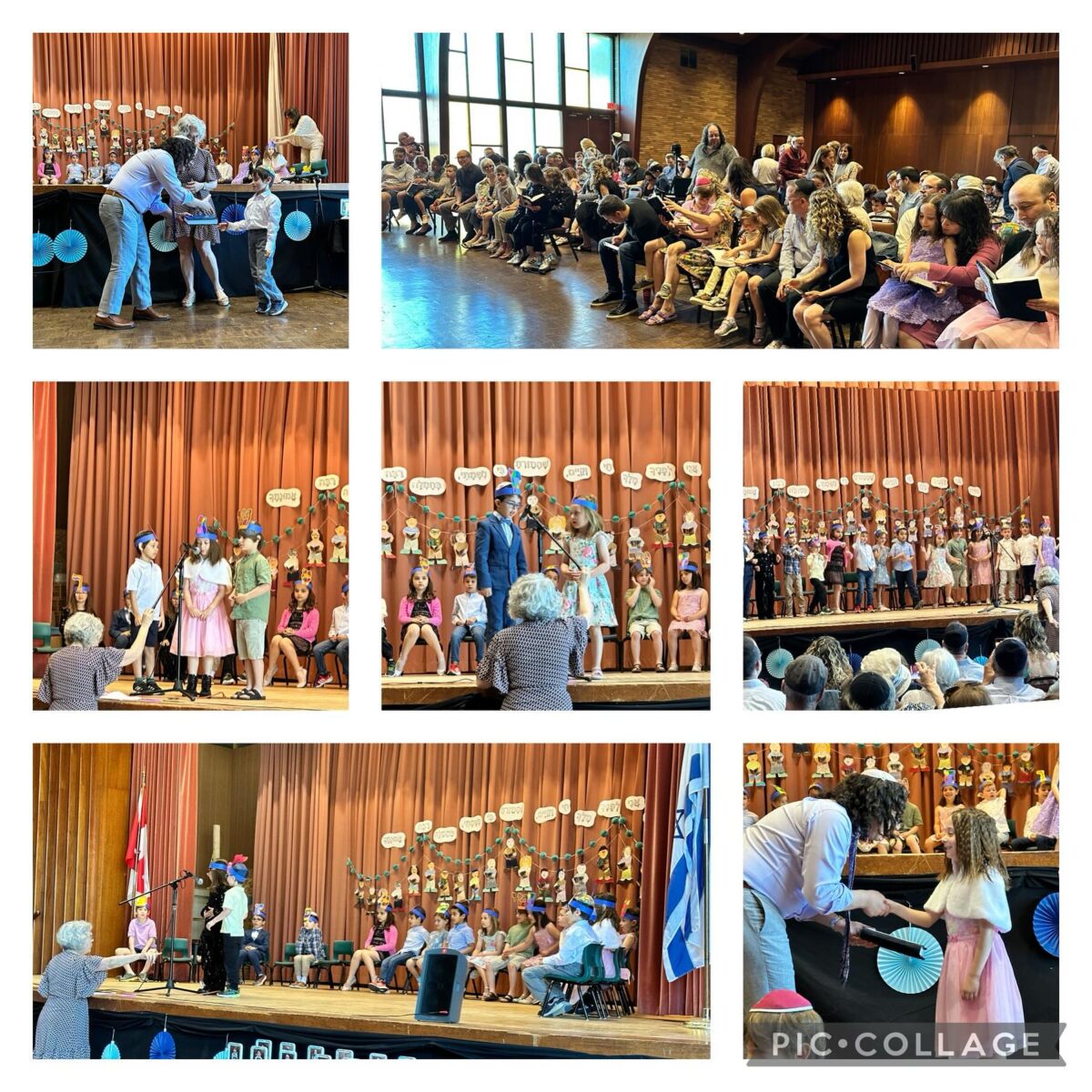

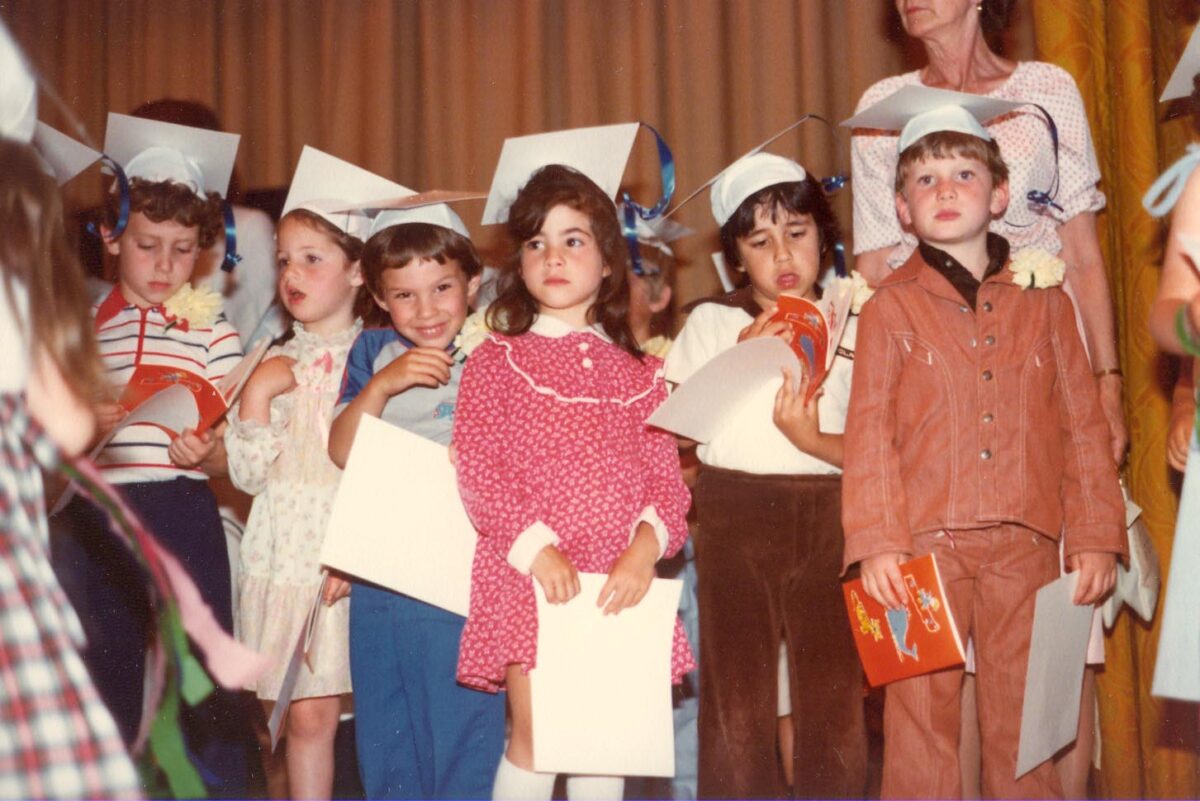
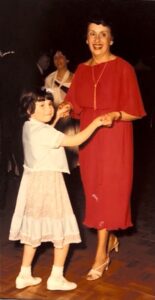 I started at Hillel Academy in 1979 in Nursery, which at the time, was housed at Agudath Israel (now Kehillat Beth Israel) and I danced on the Hebrew alphabet on the floor of the kindergarten room – which I still chuckle because that flooring is still there! In Kindergarten, my teacher was Mrs. Faigel Rosenberg. I remember that I loved Mrs. Roseberg – I adored her. That year, I lost my first tooth and I am sure Mrs. Rosenberg realized I had swallowed it but because she did not want me to feel bad for not having an actual tooth to show for it, she made the whole class look for it. It is not every teacher that would care enough to do that. That same year, my sister and brother had their b’nei mitzvah and my mother said I could invite one friend to the Saturday night party. I chose Mrs. Rosenberg and was thrilled dancing with her. She took the time out of her weekend to be my “date”! That was the start of my experience with Hillel/OJCS teachers and how they treat all their students as extensions of their own families.
I started at Hillel Academy in 1979 in Nursery, which at the time, was housed at Agudath Israel (now Kehillat Beth Israel) and I danced on the Hebrew alphabet on the floor of the kindergarten room – which I still chuckle because that flooring is still there! In Kindergarten, my teacher was Mrs. Faigel Rosenberg. I remember that I loved Mrs. Roseberg – I adored her. That year, I lost my first tooth and I am sure Mrs. Rosenberg realized I had swallowed it but because she did not want me to feel bad for not having an actual tooth to show for it, she made the whole class look for it. It is not every teacher that would care enough to do that. That same year, my sister and brother had their b’nei mitzvah and my mother said I could invite one friend to the Saturday night party. I chose Mrs. Rosenberg and was thrilled dancing with her. She took the time out of her weekend to be my “date”! That was the start of my experience with Hillel/OJCS teachers and how they treat all their students as extensions of their own families.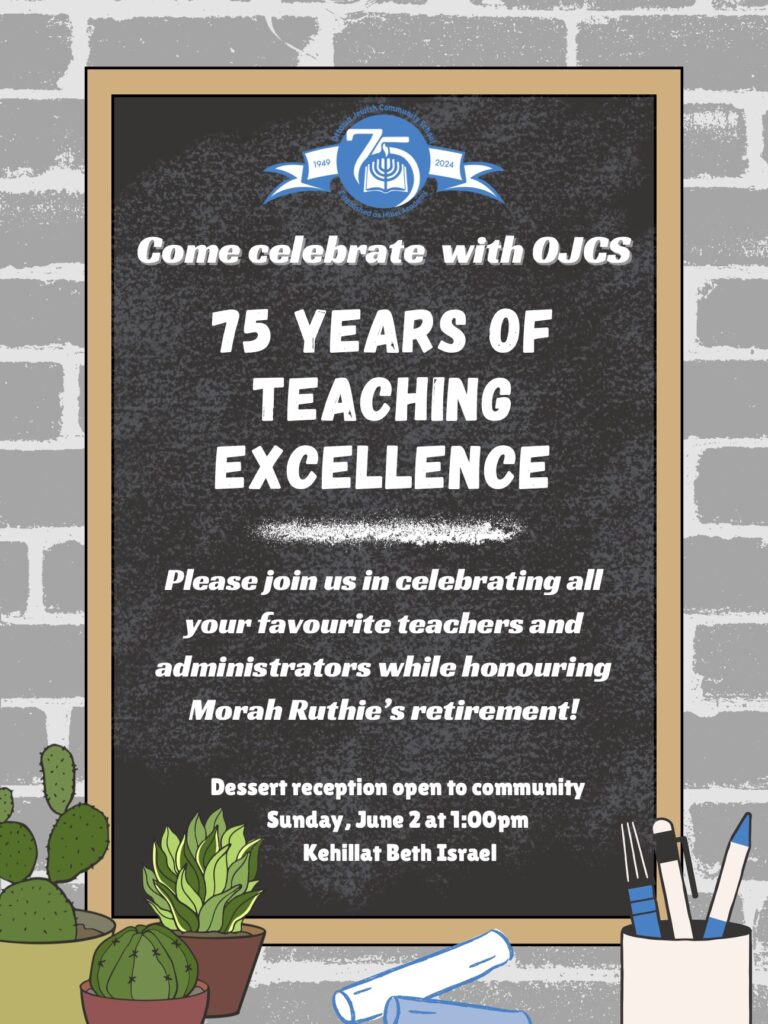

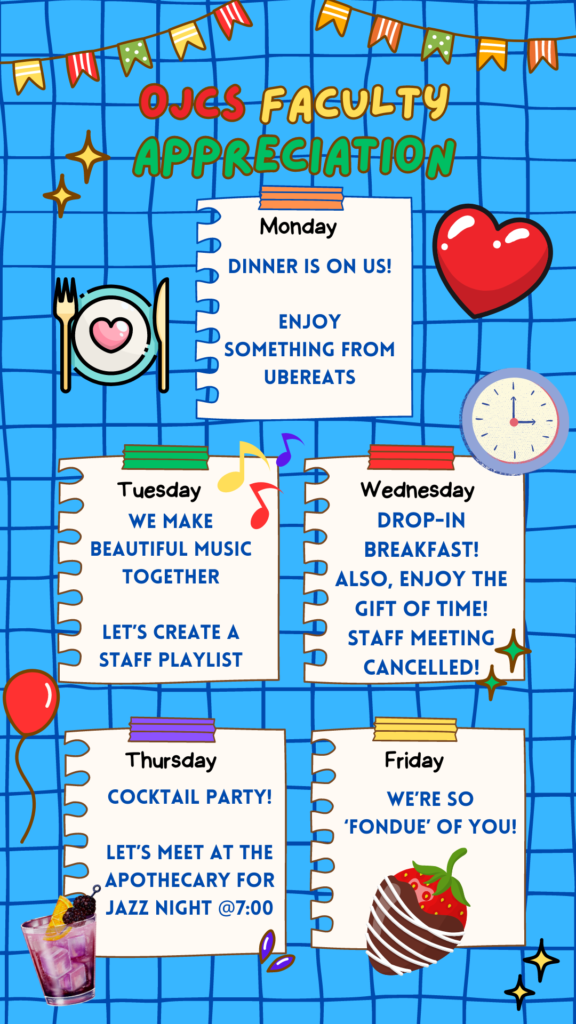

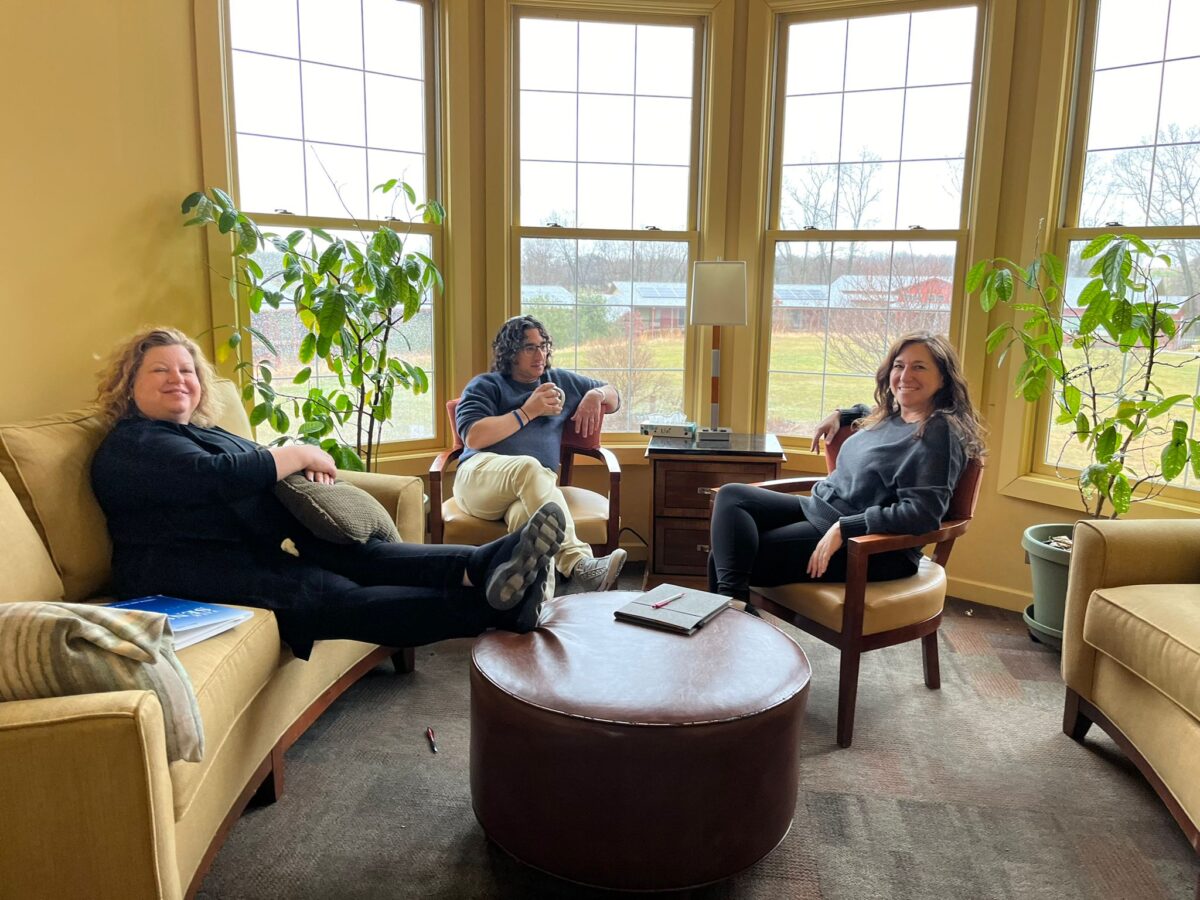
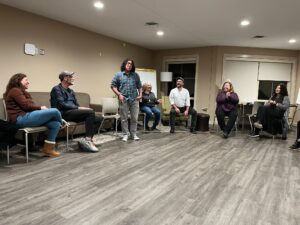 I had the opportunity this week to facilitate a
I had the opportunity this week to facilitate a